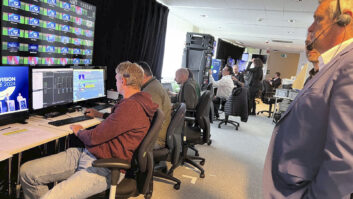The European Commission has launched a new project to investigate the next generation of wireless networks and develop fundamental 6G technologies.
The project, named Hexa-X, will be lead by telco Nokia. It has been awarded funding from the European Commission under the European Union’s Horizon 2020 research and innovation programme.
Stakeholders range from network vendors, communication service providers, verticals, to technology providers, as well as the most prominent European communications research institutes. They include Ericsson, Intel, Orange and Telefonica.
Nokia Bell Labs, together with the Hexa-X consortium, has identified six research challenges that need to be addressed to lay the technical foundation for 6G wireless systems:
- Connecting intelligence: AI/Machine Learning (ML) technologies need to be a vital and trusted tool for significantly improved efficiency and service experience, serving humans
- Network of networks: multiple types of resources need to be aggregated to create a digital ecosystem that grows more and more capable, intelligent, and heterogeneous, eventually creating a single network of networks
- Sustainability: energy-optimised digital infrastructure for a reduced global ICT environmental footprint, as well as delivering effective and sustainable digitisation tools for global industry, society and policymakers
- Global service coverage: efficient and affordable solutions for global service coverage, connecting remote places
- Extreme experience: extreme bitrates, extremely low (imperceptible) latencies, seemingly infinite capacity, and precision localisation and sensing
- Trustworthiness: ensuring the confidentiality and integrity of communications and delivering data privacy, operational resilience and security
Peter Vetter, head of Access and Devices Research, Nokia Bell Labs, said: “In the 6G era we will see applications that will not only connect humans with machines but also connect humans with the digital world. Such a secure and private connection can be used for preventive healthcare or even to create a 6G network with a sixth sense that intuitively understands our intentions, making our interactions with the physical world more effective and anticipating our needs, thereby improving our productivity.”
The Hexa-X project starts on 1st January 2021, with a planned duration of two and a half years.







